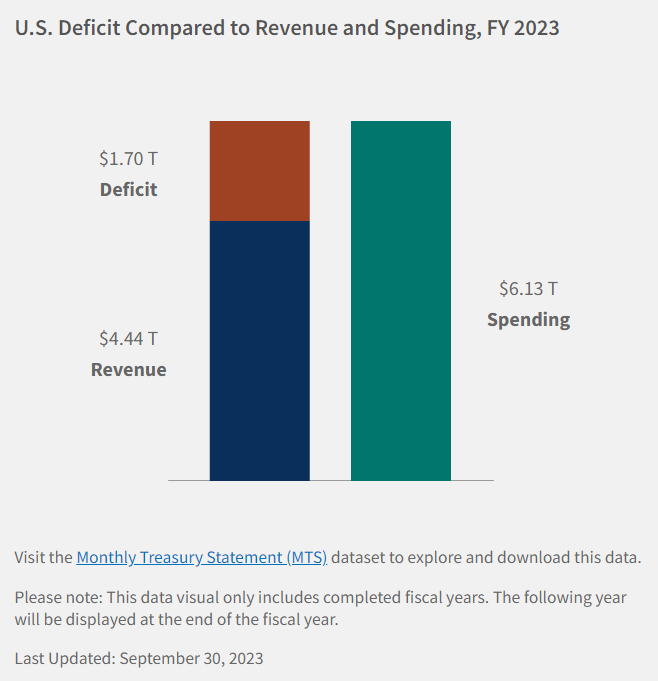(I wanted to begin with gratitude. Our conversation here has been growing quickly and we now have more than 1,000 people who subscribe to have these columns sent directly to their email inboxes. That’s very humbling. Thank you!)
When I’m doing a story on television, I know that thousands of people are watching. But it’s usually a one-way conversation. I’m talking and also then hoping that the audience understood what I was saying and became more informed.
I love speaking in person to groups, though, because it’s a two-way conversation and I don’t know what question I’m going to get from the crowd. That happened to me this past week. I was speaking to the Iowa Chapter of the American Society of Farm Managers and Rural Appraisers in Ankeny.
I talked about the Iowa Caucuses. What did the results mean? What surprised me? Does anyone really want to see a rematch between Joe Biden and Donald Trump, other than Joe Biden and Donald Trump?
The audience was great. I shortened my remarks to about 25 minutes, since I was the final speaker of the conference and the reason these folks couldn’t get in their cars and head for home. But they asked about 45 minutes worth of questions. That makes these speaking gigs so fun. Apparently they weren’t in a hurry to leave.
One man stumped me, though. What about our country’s debt? Why don’t the media talk about it more? Oof, he stopped me with that one.
Truth is: I agree with him. Why don’t we talk more about January 2nd, the date our debt topped $34 trillion dollars? 34 trillion looks like this:
$34,000,000,000,000 (that’s a LOT of zeroes!)
Even Jeff Bezos or Mark Zuckerberg can’t cut a check to take care of this bill.
I told the man in the audience that he asked a great question. And I also questioned how much the federal debt matters to Americans. It should. Obviously. But do voters hold politicians accountable when it comes to this irresponsible fiscal behavior?
It appears that our choices for the two major political parties in the November presidential election will be Biden and Trump again. Neither man has a track record as president that shows that he is committed to reducing the federal debt. So what are Americans supposed to do if that’s an issue they care about?
(Source: www.treasury.gov)
If my math is correct, the U.S. Treasury Department figures showed that for the past fiscal year, the president/Congress spent $1.38 for every $1 that the federal government took in. Obviously, that’s not good. But breaking these numbers down like this allows my brain not to get so overwhelmed trying to process numbers in the multi-trillions.
Now what? Let’s pretend that the federal politicians care about eliminating the annual deficit (then they can work on getting rid of the collective debt). They either need to raise federal revenue by 38% to eliminate the deficit or reduce spending by 38% or some combination in between. (For the sake of our conversation, let’s ignore the fact that we don’t know what either of those two actions would do to the economy.)
Which of these would your support?
Raise taxes on people making more than $250,000 annually? $500k? $1 million?
Reduce foreign aid by 5%? 10%?
Increase the corporate tax rate 5%?
Legalize marijuana federally and impose a federal tax on it?
Raise the federal gas tax five cents per gallon?
Eliminate tax credits for the oil industry?
Eliminate 10% of the federal workforce? 20%?
Raise retirement age to get full benefits?
Allow more federal government employees to work remotely and sell some federal office buildings?
Cut spending on all federal agencies by 10%?
Withhold federal salary for a year for any campaign promise that a politician breaks? (Wouldn’t that be interesting?!)
Move some federal agencies/employees out of D.C. to cheaper parts of the country?
Do you like any of those? What ideas do you have?
And getting back to that man from the audience’s question about how do we get the media to talk about this more? I’m working on it. And thanks for the question.
ETC.
—Here is one to watch this Iowa legislative session: Governor Kim Reynolds is working on a plan to define “man” and “woman.” This is what I know about it so far.
—I had a fascinating discussion with Carter Malloy, a farm boy turned entrepreneur, and how his quest to help his dad also provided a business purpose that he can use to help others, too. Watch that interview for American Farmland Owner here.
Thanks for reading. Thanks for watching. Thanks for sharing, so others can join this conversation.
I write this column as part of the Iowa Writes Collaborative, a group of independent journalists with a variety of viewpoints, experiences and backgrounds. I encourage you to check out some of their work.
Nicole Baart: This Stays Here, Sioux Center
Ray Young Bear: From Red Earth Drive, Meskwaki Settlement
Laura Belin: Iowa Politics with Laura Belin, Windsor Heights
Tory Brecht: Brecht’s Beat, Quad Cities
Dartanyan Brown, My Integrated Life, Des Moines
Doug Burns: The Iowa Mercury, Carroll
Jane Burns: The Crossover, Des Moines
Dave Busiek: Dave Busiek on Media, Des Moines
Iowa Writers’ Collaborative, Roundup
Steph Copley: It Was Never a Dress, Johnston
Art Cullen: Art Cullen’s Notebook, Storm Lake
Suzanna de Baca: Dispatches from the Heartland, Huxley
Debra Engle: A Whole New World, Madison County
Arnold Garson: Second Thoughts, Okoboji and Sioux Falls
Julie Gammack: Julie Gammack’s Iowa Potluck, Des Moines and Okoboji
Joe Geha: Fern and Joe, Ames
Jody Gifford: Benign Inspiration, West Des Moines
Rob Gray: Rob Gray’s Area, Ankeny
Nik Heftman: The Seven Times, Los Angeles and Iowa
Beth Hoffman: In the Dirt, Lovilia
Chris Jones, Chris’s Substack, Des Moines
Pat Kinney: View from Cedar Valley, Waterloo
Fern Kupfer: Fern and Joe, Ames
Robert Leonard: Deep Midwest: Politics and Culture, Bussey
Letters from Iowans, Iowa
Darcy Maulsby: Keepin’ It Rural, Calhoun County
Tar Macias: Hola Iowa, Iowa
Alison McGaughey, The Inquisitive Quad Citizen, Quad Cities
Kurt Meyer: Showing Up, St. Ansgar
Vicki Minor, Relatively Minor, Winterset
Wini Moranville: Wini’s Food Stories, Des Moines
Jeff Morrison: Between Two Rivers, Cedar Rapids
Kyle Munson: Kyle Munson’s Main Street, Des Moines
Jane Nguyen: The Asian Iowan, West Des Moines
John Naughton: My Life, in Color, Des Moines
Chuck Offenburger: Iowa Boy Chuck Offenburger, Jefferson and Des Moines
Barry Piatt: Piatt on Politics Behind the Curtain, Washington, D.C.
Dave Price: Dave Price’s Perspective, Des Moines
Macey Shofroth: The Midwest Creative, Norwalk
Larry Stone: Listening to the Land, Elkader
Mary Swander: Mary Swander’s Buggy Land, Kalona
Mary Swander: Mary Swander’s Emerging Voices, Kalona
Cheryl Tevis: Unfinished Business, Boone County
Ed Tibbetts: Along the Mississippi, Davenport
Kali White VanBaale, 988: Mental Healthcare in Iowa, Bondurant
Teresa Zilk: Talking Good, Des Moines






Raising taxes on people who have avoided paying anything for what seems like forever, would be a good start, and the easy way to kick it off is to take off ceiling for collecting Socoal Security taxes. Most off us who pay in willnever see that ceiling, those who do, need to join in helping keep the rest of us alive after making them rich in the first place.
One way to cut the Budget is to cut the extras that the congress men and women receive. How much it cost to send 40 representatives to the boarder .Because I am a moderate Democrat it does not do any good to call my congress women and my senators. Do they pay for gym membership? Do they pay for their medical coverage?